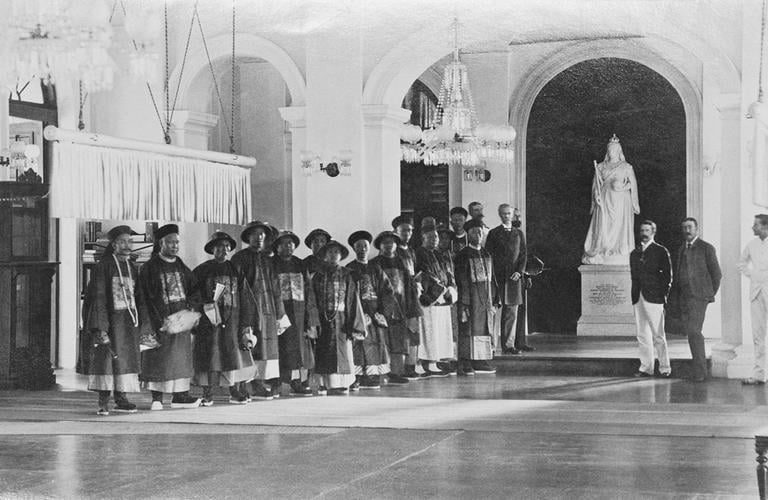Victoria Abroad: commemorating a queen in a time of imperial expansion

Queen Victoria was the most widely commemorated woman of the late nineteenth century. At a time when hundreds of statues to commemorate prime ministers, military officials, and other male worthies proliferated around cities in Britain and the empire, hundreds of statues of the queen were installed in numerous localities from Leeds to Calcutta to Singapore. Her likeness was reproduced in marble, bronze, and stone.
Her statues were frequently placed on tall pedestals in urban centers so she was positioned to loom over passersby. These representations curated her image to make her appear stately, solidifying her relationship to her subjects. Largely produced in the second half of her reign when the British empire expanded to include a quarter of the world’s population, statues of the queen marked her sovereignty in places she visited, such as Leeds, or places she did not, such as Calcutta or Singapore. Produced to mark the occasion of the jubilees in 1887 and 1897, followed by her death in 1901, historical monuments in Queen Victoria’s honor marked the territorial expansion of the British empire and consolidated the idea of a relationship with a loyal and subject population.
Dr. Durba Ghosh is a professor at the Department of History at Cornell University. Her teaching and research focus on the history of British colonialism in the Indian subcontinent. She is the author of two books, Sex and the Family in Colonial India, and Gentlemanly Terrorists, as well as numerous journal articles and book chapters. Her work particularly focuses on the relationship between colonial agents, officials, and elites and those who were colonized. Dr. Ghosh’s next project focuses on commemorations of freedom fighters, and the ways in which public monuments and statues to mark India’s independence struggle have become a part of India’s political landscape.

